Many areas of Africa contain fragile environments and it’s incredibly important to preserve the ecosystems that exist there. This is particularly true in Zambia, which is home to the Zambezi River, Victoria Falls, Kafue National Park and much more. Fortunately, many lodges are realizing travelers in Africa want to stay in a place that minimally effects, or even goes above and beyond to help the local environment. These five eco-lodges in Zambia are doing their part and have stylish accommodations to boot!
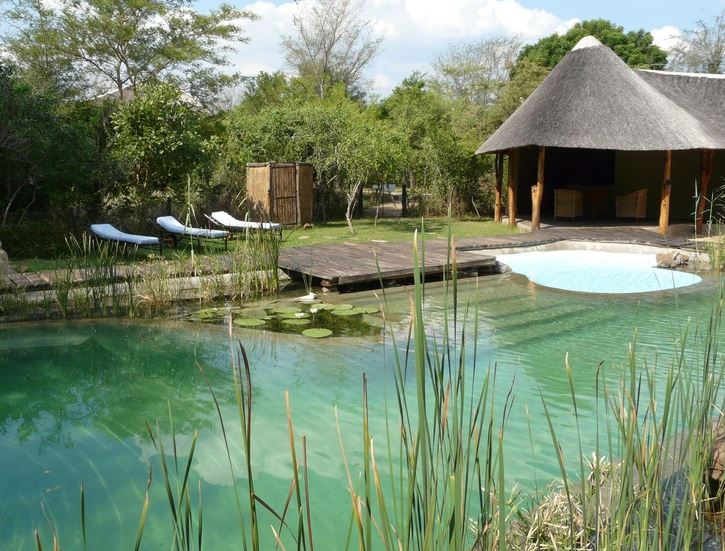
Courtesy of mungaecolodge.com
Munga Eco Lodge
Munga is one of the most widely praised eco-lodges in Zambia and is located on the southern edge of Livingstone, just a stone’s throw from Victoria Falls. The lodge is Afro-centric in design and the thatched-roof chalets seamlessly blend in with the natural environment. The environmentally friendly aspects of the lodge include rammed earth walls, organic produce and indoor fixtures made by local artisans out of reeds, bamboo and other sustainable products. In addition, there’s a biological swimming pool which is cleaned by the aquatic plants and stone. Munga is also intimately involved with local causes and supports the Cowboy Cliff Orphanage and community school. There are also green experiences to take part in during your journey.
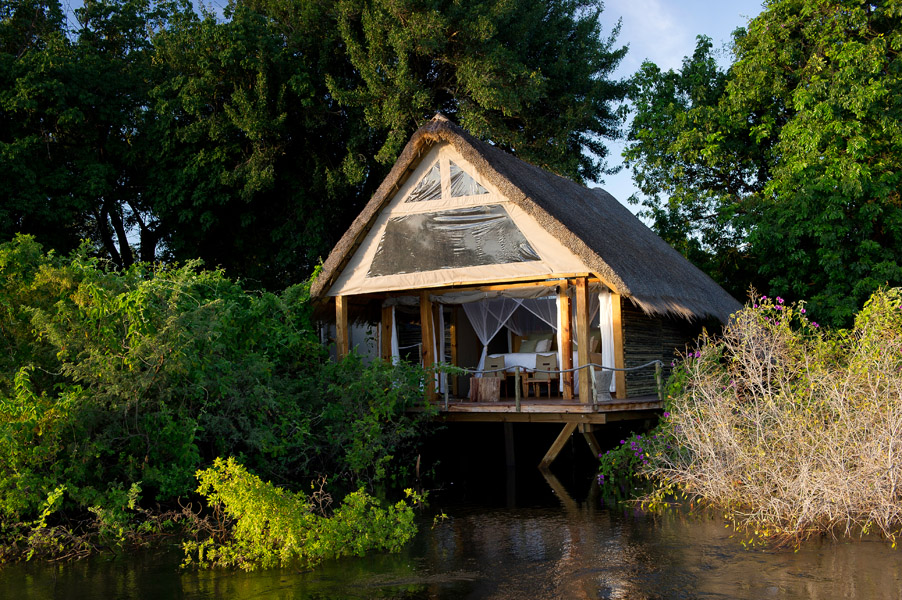
Courtesy of tongabezi.com
Sindabezi Island
Located on an island in the middle of the Zambezi river, this intimate eco-lodge is the perfect place to get into nature in comfort, while still being close enough to Victoria Falls to explore it. There are only five open-sided thatched cottages on the island, meaning you’ll have a slice of the river mostly to yourself. The lodge is completely off the grid and is powered by solar panels with paraffin lamps to supplement it. All cooking is gas and all the cleaning products are biodegradable. Guests will enjoy organic produce picked every morning from the nearby garden. Sindabezi also helps with a local school, Tujatane, which guests are encouraged to contribute to by bringing items when they come.
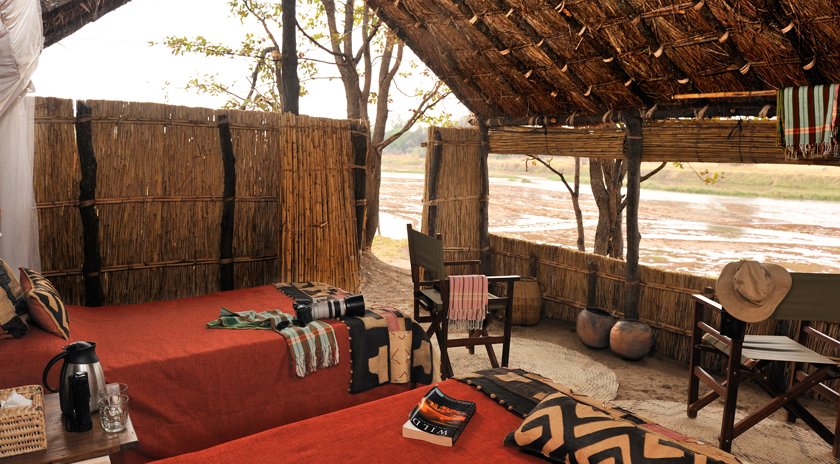
Courtesy of remoteafrica.com
Mwaleshi Camp
This remote camp run by Remote Africa Safaris is located deep in North Luangwa Park and only has a short tourist season between June 15 and October 31. In fact, the camp completely rebuilds every year out of thatch and some wood. While there are some luxury items at the camp like champagne and some gourmet food, the experience is more like camping than staying in a hotel. During the rainy season, all of the remnants of the camp are washed away by the Luangwa River. Mwaleshi and Remote Africa Safaris also support the North Luangwa Conservation Fund and the Tafika Fund, which help conservation in the area and the local communities.
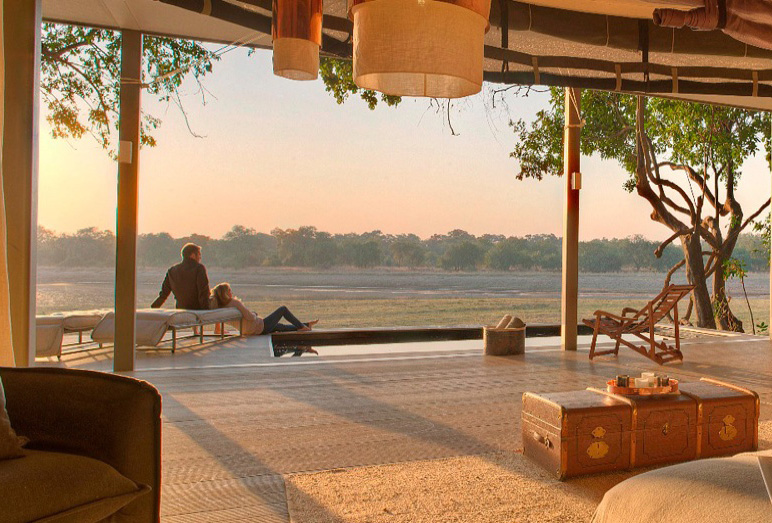
Courtesy of journeysbydesign.com
Chinzombo Lodge
The Chinzombo Lodge is designed to balance the finest in luxury while still remaining sustainable and eco-friendly. The entire lodge is built out of recyclable steel, found wood and thatch, which make up the main camp and six onsite villas. The design is decidedly minimalist, and there’s a lounge, bar, library, spa, wine cellar and veranda overlooking the river that reflect these aesthetics. The managing director of Chinzombo and Journeys by Design is an environmental scientist that has worked with numerous national parks and nature reserves throughout Africa. The Journeys by Design group has raised millions in funds for charities that support education and wildlife conservation.
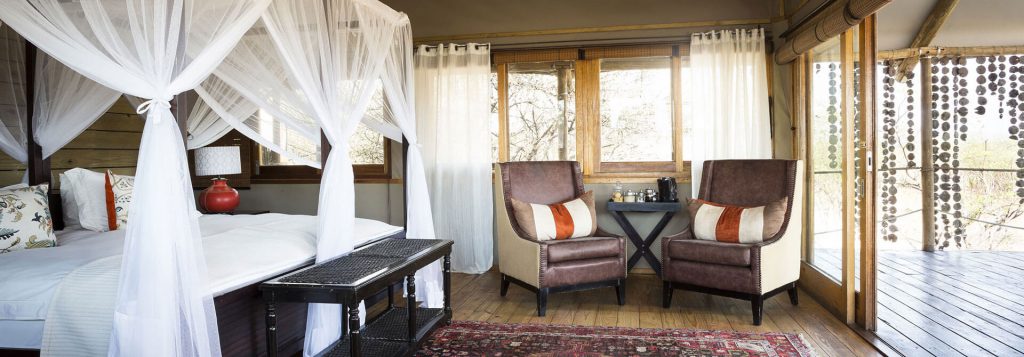
Courtesy of wilderness-safaris.com
Toka Leya Camp
Last but not least, the Toka Leya Camp is located inside Mosi-oa-Tunya National Park on the Zambezi River and is just a short distance to Victoria Falls. Guests wanting to get away from the crowds of Victoria Falls and out into nature will thoroughly enjoy this luxury eco-camp which features twelve tented rooms. The land which the camp is built on suffered from decades of abusive land practices before Wilderness Safaris acquired a lease on the land in 2008. The company helped to reforest the area and established its own nursery and greenhouse by using seeds from the local trees along with organic fertilizer from the camp’s worm farm. Toka Leya uses solar energy for hot water and has state of the art water treatment system. There are opportunities for guests to visit the Simonga village for a chance to learn about rural African culture in the area. Local kids also get to visit the camp once a year when it hosts 24 children from nearby villages for a wilderness guide and eco-mentor program.
More from AFKTravel:
15 Ways To See Zambia On A Budget
Where To Have Adrenaline Adventures in Zambia
This article was originally published on October 28, 2015.
